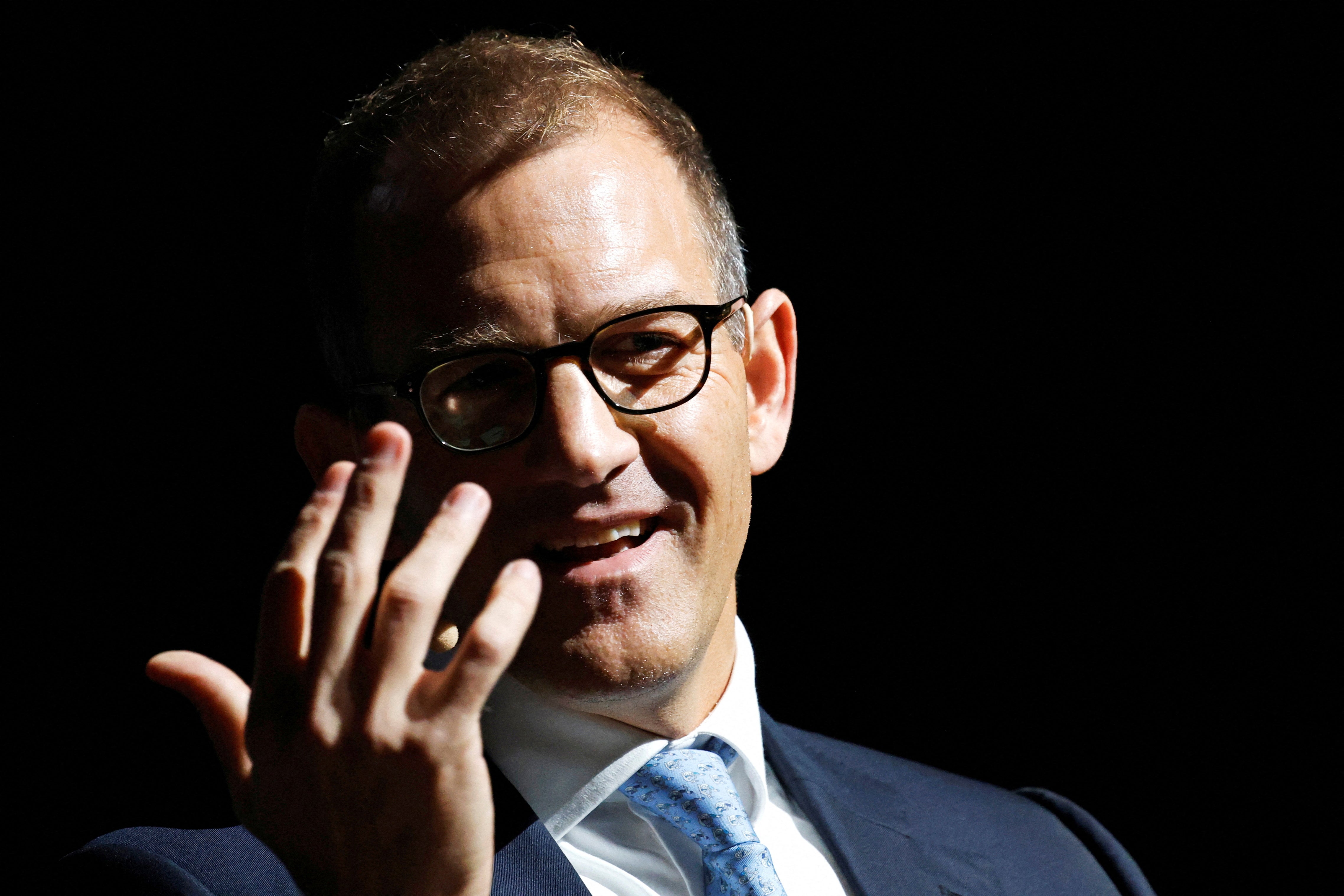Who is the Czech ‘Sphinx’ paying £5bn to take over the Royal Mail?
As the owner of Royal Mail accepts a takeover bid worth £5bn, Chris Blackhurst takes a closer look at the Czech billionaires armed with cheques who are taking over some of our biggest national institutions — and how former Labour business secretary Chuka Umunna is helping one of them


Last May, Daniel Kretinsky gave a rare interview.
Known as “the Czech Sphinx”, the enigmatic, low-profile billionaire “makes it clear”, says the newspaper, “that he will not be bidding for Royal Mail, where his Vesa investment vehicle owns more than 25 per cent, or Sainsbury’s, where it has 10 per cent”. Kretinsky said: “We are interested to see whether a company has the capability to generate sufficient free cashflows, which means you create economic value. There may be companies where you can be a happy 10 per cent shareholder for 20 years.”
Forget 20 years. Not even a year on, and Kretinsky has had hid £5bn bid for the Royal Mail accepted.
In April, his company made a “non-binding indicative proposal” to the board of International Distribution Services or IDS, Royal Mail’s parent, seeking recommendation for a cash offer for the remainder of the shares it does not already own. Then he was offering 320p a share, 50p above the current IDS share price. Since, the IDS has approved a revised proposal of 370p a share from Mr Kretinsky’s EP Group. The Czech billionaire Daniel Kretinsky firmed up his offer of £5bn, which would include assumed debts, for the company which employs more than 150,000 people.
The deal still faces will still need to be approved by shareholders at IDS’s next annual general meeting in September and could yet be blocked by the incoming government under the National Security and Investment Act.
A former lawyer, Kretinsky, 48, likes splashing the cash. If the proposal goes through he can expect to pay more than £3bn to land the national postal service. As well as the stake in Sainsbury’s, he holds 27 per cent of West Ham football club, and 13 per cent of Le Monde, the French newspaper. He has bought substantial assets from the German energy group E.On, Swedish power company Vattenfall, and British Gas parent Centrica. Worth an estimated £7.3bn personally, he’s also been spoken of as a possible purchaser of the Daily Telegraph stable of titles.
If Kretinsky succeeds in buying Royal Mail, it will be the latest instance of a British icon falling into foreign hands. More specifically, it will be the second in recent times to be bought by a Czech. The Royal Mail will join the National Lottery in coming under Czech ownership.
In 2011, the Czech state lottery operator, Sazka, was privatised. Sazka rebranded as Allwyn, which has secured the UK lottery contract, the biggest single government contract in the UK.
Allwyn is owned by Karel Komarek, 55, via his holding company KKGC. Like Kretinsky, Komarek made his fortune in the Czech energy market once it fell out of communist government control.
In some countries, the idea of bodies as vital to the nation’s life as its postal service and lottery (funder, don’t forget, of all sorts of good causes) falling into foreign hands would be anathema. Not, it seems, where the UK is concerned.
Kretinsky has been advised by Chuka Umunna, the former Labour star, now at JP Morgan where he is a managing director and division head.
Once a Labour leadership hopeful, Umunna was highly critical of the Royal Mail privatisation while shadow business secretary. The former MP, who quit parliament in 2019, previously claimed that David Cameron’s sale of Royal Mail in 2013, would “destroy the UK’s universal postal service”.
Umunna said back then: “There’s no way private companies can maintain six-day-a-week deliveries to every single address in the UK.” He went on: “Maintaining the Royal Mail in public ownership gives the taxpayer an ongoing direct interest of universal postal services in this country… and it ensures the taxpayer gets the share in the upside of modernisation and the increased profits which Royal Mail delivers.”
In January, Kretinsky met Jonathan Reynolds, the current shadow business secretary, at Davos. Labour and Reynolds are said to be positive about his full ownership, believing the Czech will provide the long-term investment the Royal Mail requires. Their support matches the party’s desire to be seen to be business-friendly in the run-up to the general election and to not get in the way of market forces.
Komarek has been equally politically assiduous, riding both political horses and making substantial donations to the Conservatives and Labour. Soon after winning the National Lottery contract, Allwyn became a paid-up “tier 1” member of the business network funding Sir Keir Starmer’s party machine. Each tier 1 supporter pays £15,000 a year.
That was alongside a £20,000 donation to the Tories’ influential 1922 Committee. The gift was apparently used to sponsor an autumn reception hosted by the committee that represents backbench Tory MPs.
The straight cash donations represented a step up in political activity for Allwyn. Previously, before winning the lottery contest, it supplied free hospitality and tickets to a few MPs.
Komarek was quizzed by a parliamentary committee over his historic business ties to Russia, specifically with Gazprom, the Russian state-owned gas giant. When Russia invaded Ukraine in February 2022, and Gazprom was subsequently made subject to sanctions, Komarek was looking dangerously exposed to criticism in the West. Any hopes of owning the UK lottery, it was assumed, could be forgotten.
He moved quickly, however, publicly condemning the Russian attack as “brutal” and a “senseless act of aggression”. He maintained his companies are “doing all they can to support the brave Ukrainians impacted by the barbarism of Vladimir Putin’s regime”.
Komarek pledged to the UK government that he would sever all links with Gazprom. However, it emerged later, while the lottery contest was in full swing and Komarek had lambasted Russia and its leader, that KKGC remained co-owner with Gazprom of a gas storage facility in Moravia, in the eastern Czech Republic. KKGC responded again, diluting Gazprom’s shareholding, insisting it was in sole control of the plant. Allwyn went on to land the UK lottery.
Regarding Kretinsky’s tilt for Royal Mail, it’s not over the line yet. But if recent experience is any guide, in the UK it seems that Czechs armed with cheques have a habit of getting what they want.
Join our commenting forum
Join thought-provoking conversations, follow other Independent readers and see their replies
Comments
Bookmark popover
Removed from bookmarks